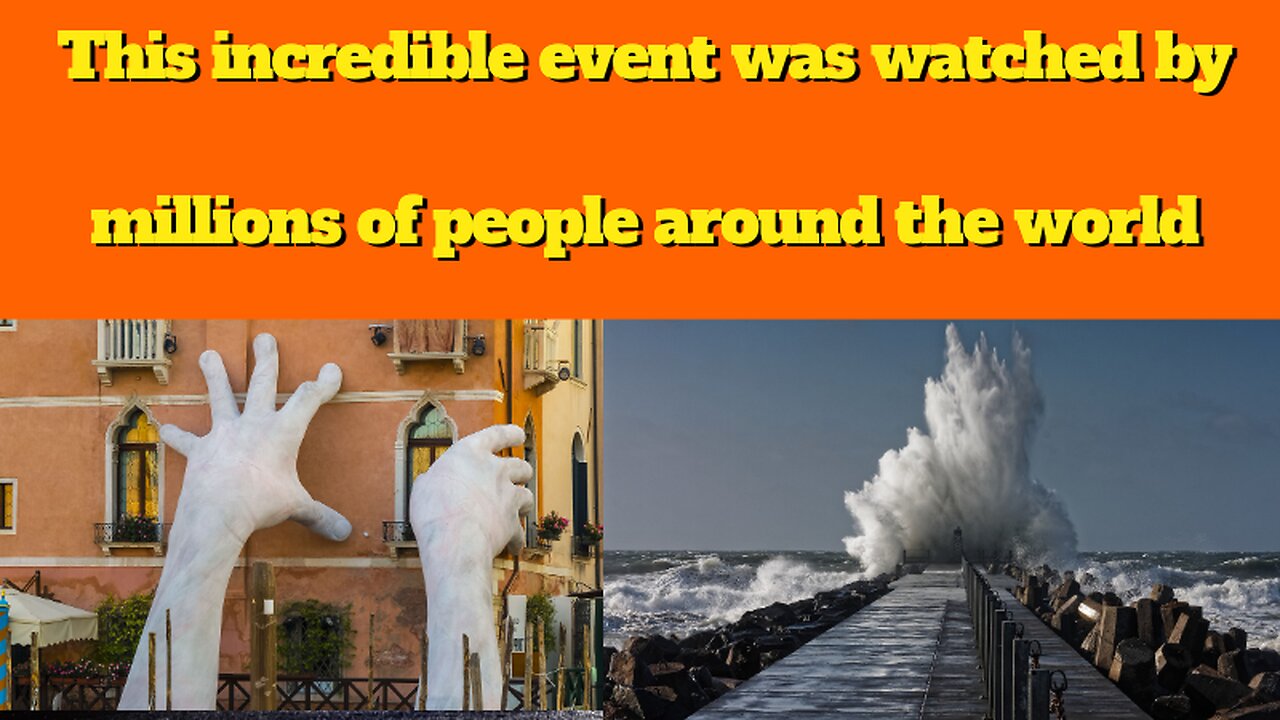Premium Only Content

This incredible event was watched by millions of people around the world
Overview of weather and natural events around the World.
What is happening in this world: natural disasters on the planet of Earth.
The latest news about weather events and disasters.
Residents of the southern hemisphere observed a total solar eclipse - a phenomenon that occurs only a few times a century. What's more, this eclipse is a particularly rare one: a hybrid one. It has been named the Ningaloo eclipse, after the UNESCO World Heritage-listed coast of Ningaloo in western Australia.
Solar eclipses occur when the Sun, Moon and Earth line up. The way they line up, as well as the curvature of the Earth's surface, determines whether an eclipse will be total or partial as the moon's shadow moves across the globe.
A hybrid solar eclipse is a combination of total and partial, when the disk of the Moon completely covers the Sun and only the outer solar edging is visible around the dark circle.
The eclipse began in the Indian Ocean at dawn and ended in the Pacific Ocean at sunset. At the beginning and at the end of the cycle it was ring-shaped, in the middle it was full.
Observers in different countries saw different phases of the hybrid solar eclipse.
The eclipse did not last long - only about 2 minutes. The best view of it opened up to residents of western Australia, East Timor and western New Guinea.
The best place to watch the eclipse is the Exmouth Peninsula in Western Australia, where tens of thousands of people from all over the world gathered.
When the sky darkened over Exmouth, the temperature dropped noticeably and the stars appeared, the crowd erupted in enthusiastic cheers. Witnesses later told reporters that it was like a dream, and even a religious ecstasy. In total, millions of people around the world watched this incredible astronomical event.
According to scientists, this extremely rare phenomenon will occur only seven times in the 21st century. The first hybrid solar eclipse of the twenty-first century occurred in November 2013. The next eclipse is due in 2031.
1. Water: rain, hail, snowfall, flood, mudflow, tsunami, high tide, heavy rainfall, snow, huge waves, river flooding, dam overflow, ice flood, snowfall.
2. Fire: fire, forest fire, volcanic lava, lightning.
3. Earth: earthquake, landslide, rockfall, sinkhole.
4. Air: tornado, hurricane, wind, cyclone, storm, typhoon, sandstorm, tropical storm.
5. Space: lunar eclipse, solar eclipse, planetary parade, asteroid, comet, planet, satellite, meteorite, UFO, fireball in the sky, space debris, full moon, ISS, space exploration, Space X, NASA.
6. Nature: animals, insects, plants, climatic zones, natural events and phenomena.
-
 10:58
10:58
Degenerate Jay
1 day ago $10.58 earnedThe Rejected Deadpool And Wolverine Joke That Was Too Far For Disney
107K7 -
 13:00
13:00
Dermatologist Dr. Dustin Portela
16 hours ago $6.20 earnedAnother Insurance Company Harming Patients - Doctor Explains
52.5K5 -
 52:32
52:32
Survive History
23 hours ago $7.94 earnedCould You Survive in King George's Redcoats During the Jacobite Rising?
56.7K5 -
 17:53
17:53
Fit'n Fire
21 hours ago $3.04 earnedA Rifle for the Family -- BCM MK2 BFH and Gunnr Optics Odin 1-10x28mm LPVO
43.1K7 -
 1:03:52
1:03:52
GrassRootsWarriorNetwork
1 month agoWe The People Are The News Now While MSM Is On It’s Way Out - YourNews.com with Sam Anthony
29.7K2 -
 21:12
21:12
DeVory Darkins
16 hours ago $25.05 earnedGavin Newsom gets what he deserves after NBC Reporter FACT CHECKS his Lies
122K79 -
 1:57:13
1:57:13
MyronGainesX
16 hours agoFormer Fed Explains Sting That Led To The Murder Of A State Trooper
110K22 -
 3:56:27
3:56:27
Due Dissidence
23 hours agoNewsom ROASTED For Pod Save Interview, Candace Owens CALLS OUT Elon, Ian Carroll RATIOES Israel Post
99.6K94 -
 2:16:17
2:16:17
TheSaltyCracker
15 hours agoLooters Descend on LA ReeEEeE Stream 01-12-25
185K380 -
 40:32
40:32
Man in America
19 hours agoRockefeller Medicine COLLAPSES as God's Natural Healing Takes Over w/ Angie Tomky
72.4K44